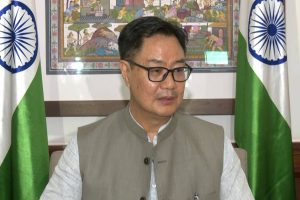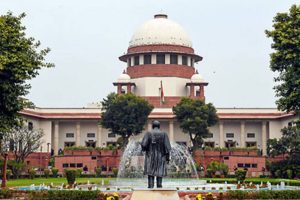The Supreme Court on Thursday rejected the petition filed by Justice Yashwant Varma of the Allahabad High Court, challenging the report of an in-house three-judge inquiry committee and the recommendation by former Chief Justice of India Sanjiv Khanna to initiate impeachment proceedings against him.
A bench comprising Justices Dipankar Datta and Augustine George Masih dismissed Justice Varma’s argument that he was denied a fair chance to present his defence before the committee concluded its findings.
The petition was argued by Senior Advocate Kapil Sibal, who represented Justice Varma in court.
The case stems from a controversial incident on March 14, when cash was allegedly discovered at Justice Varma’s Delhi residence after a fire broke out. At the time, he was serving as a judge of the Delhi High Court and was reportedly not present at home when the fire occurred.
During a previous hearing on July 28, the apex court had raised several questions regarding the timing and nature of the petition. The bench queried why Justice Varma chose to appear before the in-house inquiry panel if he believed the process was unconstitutional.
“If you believed the committee was unconstitutional, why did you appear before it? Why are you raising this challenge now, after the process is over?” the bench asked.
The justices also pointed out that other judges in similar situations had previously refused to appear before such panels and had taken timely legal recourse. They asserted that as a constitutional authority, Justice Varma should have challenged the process immediately, rather than waiting until an adverse finding was delivered.
“You’re a constitutional authority. You can’t say you didn’t know your rights. These concerns should have been brought before this Court earlier,” the bench remarked.
Meanwhile, Union Parliamentary Affairs Minister Kiren Rijiju confirmed that the impeachment motion against Justice Varma will first be introduced in the Lok Sabha, in line with established parliamentary procedure.
“The motion for Justice Varma’s removal will be raised in the Lok Sabha, and then concurred by the Rajya Sabha,” Rijiju told reporters.
He emphasised that the decision must reflect a unified stance across political parties, stating that the responsibility to uphold judicial integrity rests with the entire Parliament.
“This is not just the government’s initiative; it is the collective duty of Parliament to act against judicial corruption,” Rijiju said.
“We should remain united when it comes to preserving the dignity and accountability of the judiciary.”




